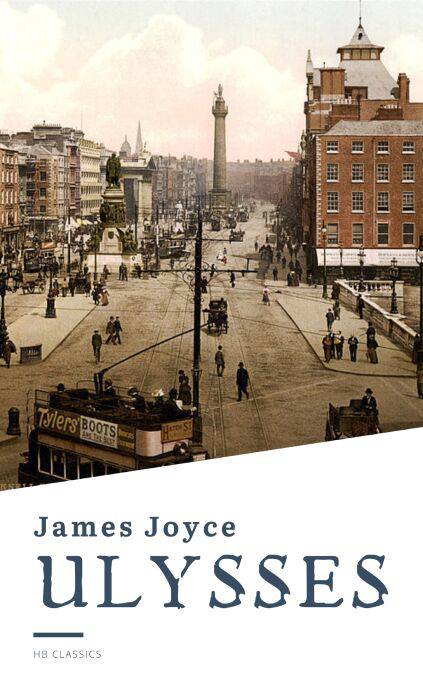
- Afhalen na 1 uur in een winkel met voorraad
- Gratis thuislevering in België vanaf € 30
- Ruim aanbod met 7 miljoen producten
- Afhalen na 1 uur in een winkel met voorraad
- Gratis thuislevering in België vanaf € 30
- Ruim aanbod met 7 miljoen producten
Zoeken
Omschrijving
In the past, Ulysses has been labeled dirty, blasphemous, and even unreadable. None of these adjectives, however, do the slightest justice to the novel. To this day it remains the modernist masterpiece, in which the author takes both Celtic lyricism and vulgarity to splendid extremes. It is funny, sorrowful, and even (in a close-focus sort of way) suspenseful. And despite the exegetical industry that has sprung up in the last 75 years, Ulysses is also a compulsively readable book.
William Blake saw the universe in a grain of sand. Joyce saw it in Dublin, Ireland, on June 16, 1904, a day distinguished by its utter normality. Two characters, Stephen Dedalus and Leopold Bloom, go about their separate business, crossing paths with a gallery of indelible Dubliners. We watch them teach, eat, stroll the streets, argue, and (in Bloom's case) masturbate. And thanks to the book's stream-of-consciousness technique — which suggests no mere stream but an impossibly deep, swift-running river — we're privy to their thoughts, emotions, and memories. The result? Almost every variety of human experience is crammed into the accordian folds of a single day, which makes Ulysses not just an experimental work but the very last word in realism.
I hold this book to be the most important expression which the present age has found; it is a book to which we are all indebted, and from which none of us can escape. —T. S. Eliot
What is so staggering about "Ulysses" is the fact that behind a thousand veils nothing lies hidden; that it turns neither toward the mind nor toward the world, but, as cold as the moon looking on from cosmic space, allows the drama of growth, being, and decay to pursue its course. —Carl Jung
The greatest novel of the 20th century. —Anthony Burgess
"Ulysses" is extraordinarily interesting to those who have patience (and they need it). —John Middleton Murry
It is difficult not to acclaim a masterpiece. —Virginia Woolf
William Blake saw the universe in a grain of sand. Joyce saw it in Dublin, Ireland, on June 16, 1904, a day distinguished by its utter normality. Two characters, Stephen Dedalus and Leopold Bloom, go about their separate business, crossing paths with a gallery of indelible Dubliners. We watch them teach, eat, stroll the streets, argue, and (in Bloom's case) masturbate. And thanks to the book's stream-of-consciousness technique — which suggests no mere stream but an impossibly deep, swift-running river — we're privy to their thoughts, emotions, and memories. The result? Almost every variety of human experience is crammed into the accordian folds of a single day, which makes Ulysses not just an experimental work but the very last word in realism.
I hold this book to be the most important expression which the present age has found; it is a book to which we are all indebted, and from which none of us can escape. —T. S. Eliot
What is so staggering about "Ulysses" is the fact that behind a thousand veils nothing lies hidden; that it turns neither toward the mind nor toward the world, but, as cold as the moon looking on from cosmic space, allows the drama of growth, being, and decay to pursue its course. —Carl Jung
The greatest novel of the 20th century. —Anthony Burgess
"Ulysses" is extraordinarily interesting to those who have patience (and they need it). —John Middleton Murry
It is difficult not to acclaim a masterpiece. —Virginia Woolf
Specificaties
Betrokkenen
- Auteur(s):
- Uitgeverij:
Inhoud
- Aantal bladzijden:
- 729
- Taal:
- Engels
Eigenschappen
- Productcode (EAN):
- 9782380376074
- Verschijningsdatum:
- 24/12/2022
- Uitvoering:
- E-book
- Beveiligd met:
- Digital watermarking
- Formaat:
- ePub

Alleen bij Standaard Boekhandel
Beoordelingen
We publiceren alleen reviews die voldoen aan de voorwaarden voor reviews. Bekijk onze voorwaarden voor reviews.







